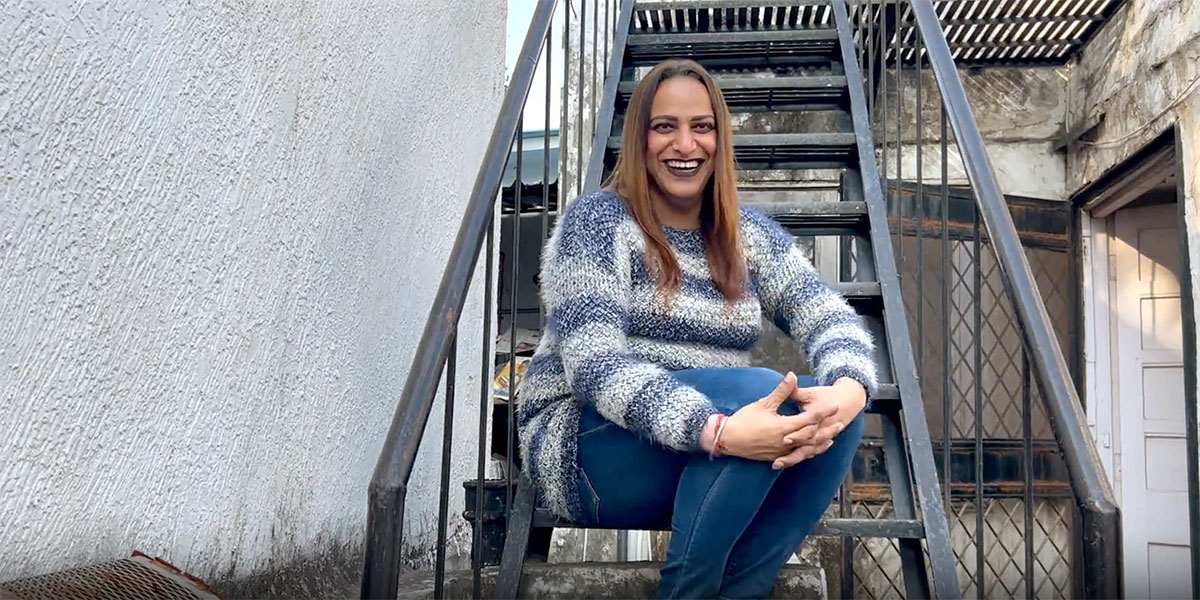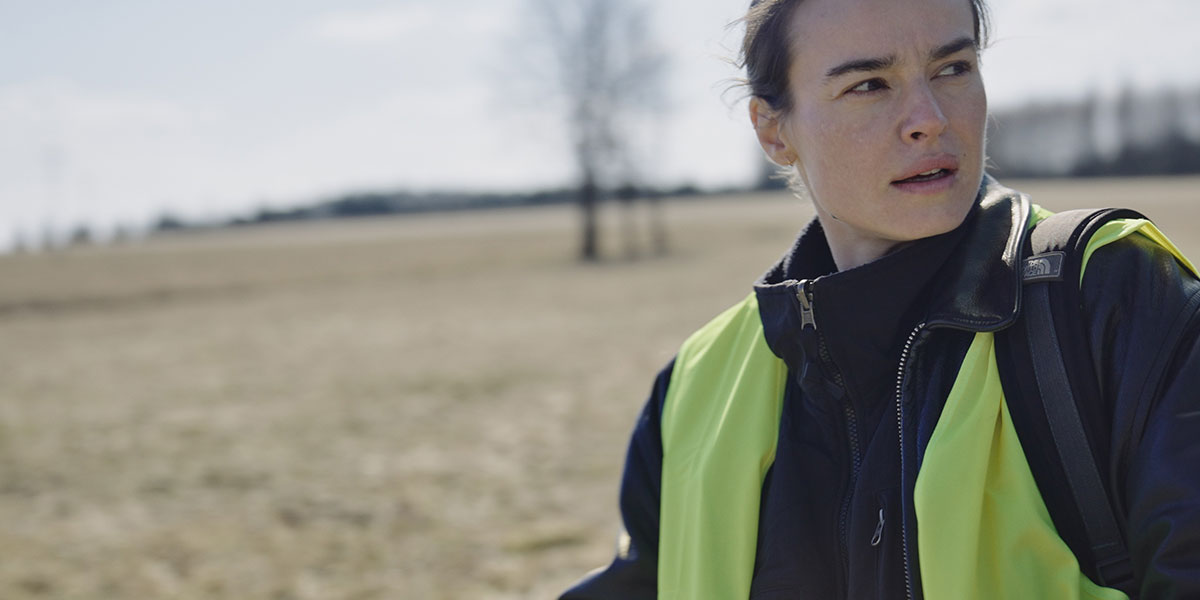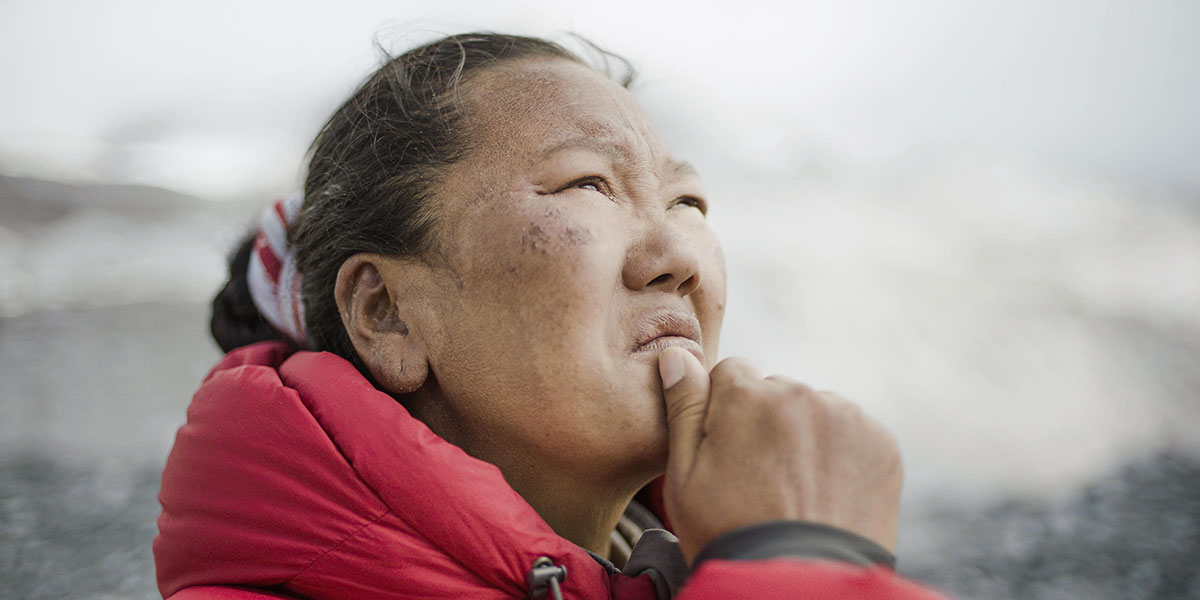“Sirat shot the story that she wanted to tell,” says Deepa Mehta. The acclaimed filmmaker is discussing her latest project, I Am Sirat. The documentary is a uniquely collaborative work made with the film’s co-director and star Sirat Taneja, who shares her daily experience as a transgender woman in India. “Sirat’s in control of her own narration and the story is through her lens.”
I Am Sirat, which recently premiered at the Toronto International Film Festival, is a moving self-portrait that draws from Sirat’s natural chemistry with the camera. The documentary features numerous clips from Sirat’s Instagram account—lip syncs, parties with friends, and glamour shots—so the feature essentially offers an extension of work she was already doing to further trans visibility.
“I loved doing the Instagrams, but they couldn’t completely express how I felt because the nature of Instagram is very small,” Taneja explains in an interview with Mehta translating. “I wanted to express what I go through and do it on a larger scale, not only for myself to identify who I am, but also how I am caught between my duty towards my mother and my self-determination that I am a woman.”
The film observes how Sirat juggles her loyalty to herself and to her mother by living double lives. At home, she presents as male and her mother refers to her by the boy name she gave her at birth. When Sirat leaves for work, she transforms into her true self, donning make-up and a sari (sometimes changing quickly in the cab) and enjoys a full day as a woman at the ministry of defense. Sirat takes life in stride, bearing the emotional and physical strain of juggling two lives, but she expresses patience with her mother, knowing her attitude reflects another era.
Taking a Collaborative Approach
Mehta says that she met Sirat four years ago during a table read and acting workshops for the Netflix series Leila in which Taneja played a transgender guardsperson. “During the workshop, we got to know each other because that’s an intimate space. We did workshops for a week, which is something that I like doing with my films,” explains Mehta. “Sirat is amazingly optimistic and she is fearless. That is an amazing quality because she’s making a tough choice, but she takes it head-on.”
When Sirat suggested to Mehta in December 2022 that they make a film together about her story, the duo already had a foundation of trust in their relationship. However, well aware of the fact that many documentaries about LGBTQ stories, particularly those sharing transgender experiences, come from an outsider’s point of view, Mehta says she had to consider Sirat’s proposal.
“I said it had to be done in a way that I’m not the director telling you ‘action,’” says Mehta. “I said, ‘Sirat, the only way I can do it is if I facilitate you telling your story.’” The doc features footage shot vertically by Sirat on her iPhone, while horizontal framing signals Mehta’s images. The film’s opening title cards signal the authorship of the two perspectives from the outset. “I have objectivity, but Sirat is in control of the narrative,” adds Mehta. “That was very important for me. I didn’t want to control her narrative. It’s her story.”
Agency through Storytelling
Taneja adds that she liked this arrangement because it respected her point of view and agency. “Deepa knew my story and what I wanted to tell,” says Sirat. “It’s my life and I grew up in a certain way.” All the parameters were there for Sirat to film her daily life. Besides navigating her relationship with her mother, Sirat offers footage of her everyday experience: hanging out at the mall with friends, going to parties, and taking to task any drycleaner who might try to swindle her. Her joy and optimism is infectious as she constantly raises up people around her. The process also lets Sirat decide which material she passed on to Mehta. She could self-edit throughout production, choosing which videos to keep and which to delete.
For Mehta, who premiered her first documentary at the inaugural TIFF (then the Festival of Festivals in 1976) and went on to make acclaimed dramas like Earth, Fire, Water, Midnight’s Children, Funny Boy, and Anatomy of Violence, making a collaborative doc was still in her line of work. “It didn’t feel any different because it’s about the people, it’s about human stories,” she says. “What touched me greatly about Funny Boy, for example, is how we don’t embrace somebody, whether it’s their religion, gender, class, or caste. We have this aversion to the ‘other’ and I find that very disturbing because it’s so important that we embrace every aspect of humanity. All of my films are about people who are trying to find themselves. Sirat found herself and yet has duality with her duty to her mother versus self-determination—what courage that takes.”
An Affirmation of Identity
Sirat’s courageousness includes the openness with which she shares her life as a boy in the documentary. Where other documentaries might omit the past and bleep out former names to avoid dead-naming the participants, Sirat’s double life is on full display because it’s part of her daily reality with her mother. Sirat says it was important to include the full spectrum of her life so that viewers could understand her experience. “So many people say you ‘become transgender,’ but from childhood, I knew I was transgender,” she notes. “I wanted to show to the world that I didn’t ‘become’ transgender. I was always transgender.”
The film features an especially powerful scene in which Sirat goes to a municipal office and receives a new identity card affirming her gender. (India has specific certificates and identity cards for transgender people.) “For years, my identity was in my body and my heart. Now it’s in my hand,” Sirat says in the documentary.
Reflecting on that scene again, Sirat says it was such a happy moment of approval. “I knew that I didn’t have to keep on convincing people,” she says. “It felt liberating.”
Society in Transition
While I Am Sirat offers a progressive portrait of India in transition—Sirat attends a Pride event at India Gate with crowds of people and goes to the disco with friends, for example—she says getting the paper is a sign that things are changing. “We might be accepted on paper, but society is still dodgy.”
“I think that Sirat’s life is a microcosm of what’s happening in India,” adds Mehta. “It reflects that there is a certain amount of truth and a certain amount of acceptance, and yet there isn’t. Progress is limited, but yet it’s there.”
“I can’t control what people will think, but maybe they’ll get an insight into my life, the struggles that I’ve had, and how I’ve dealt with the struggles of what trans life is like in India,” says Sirat. “Maybe they’ll understand that we all are the same.”
I Am Sirat premiered at the 2023 Toronto International Film Festival and screens at the Vancouver International Film Festival.
It debuts on CBC Gem in January.
Get more coverage from this year’s festival here.











